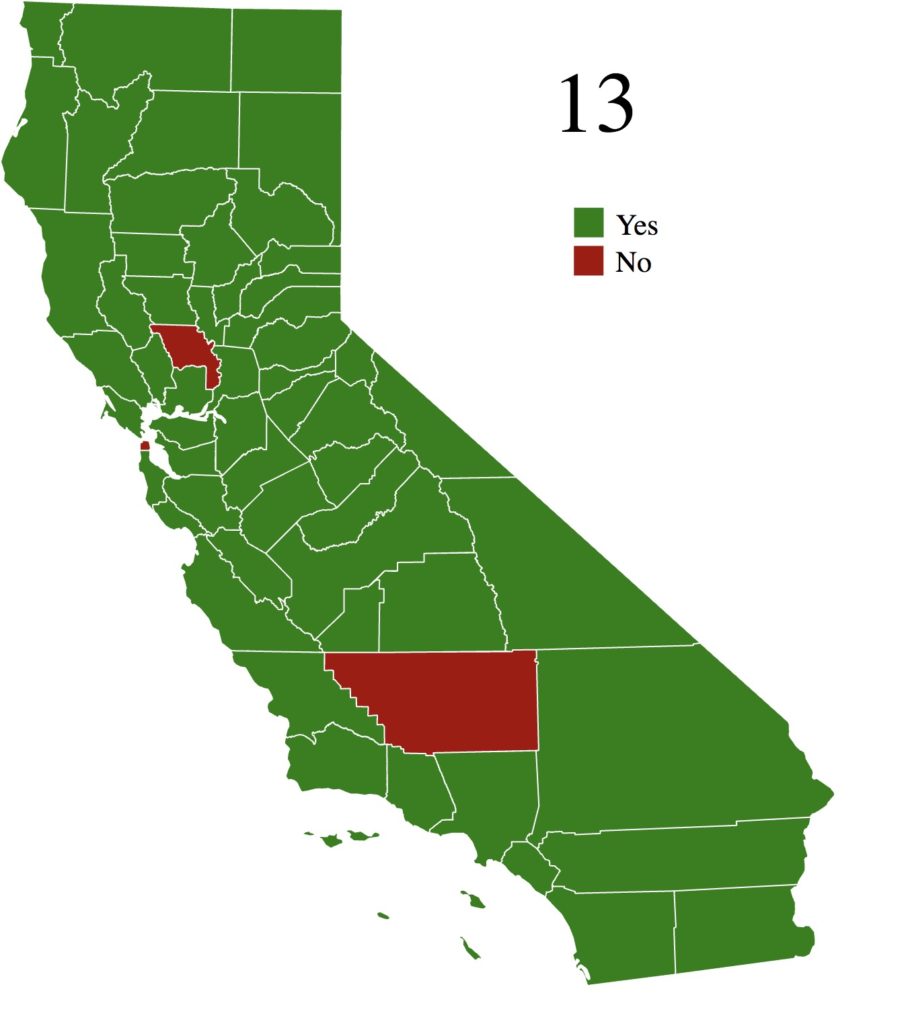A few weeks ago, we shared some thoughts on a new challenge to Proposition 13 and promised to keep you informed. Today, an update.
As odd as it sounds, the recent settlement of the teacher’s strike in Los Angeles marked the beginning of the campaign for passage of the California Schools and Local Funding Act initiative slated to go to the voters in the 2020 General Election.
Los Angeles Mayor Eric Garcetti, the LAUSD, the nation’s second largest school district, and the UTLA teacher’s union all pledged to actively support the passage of the proposition that would remove Proposition 13 protection for commercial properties throughout California.
Missed the first post? Get caught up here.
The proposed law received the necessary signatures to qualify for the ballot last fall, but it garnered little attention due to the media’s singular focus on the 2018 Midterms. Now that the election circus has left town, we can expect proponents of additional education funding to get a lot more attention as they rally aggressively for passage.
The authors of this first real challenge to 1978’s Proposition 13 estimate that an additional $11 billion dollars per year will be collected from commercial property owners to fund education and local governments. With that much at stake, we can expect an all-out effort for passage from our state legislature, cities, counties, school districts, teachers unions and the business sectors that provide goods and services to public schools. Opposing that kind of support will be a daunting task, to say the least.

We have read the text of the proposition over and over again and we are simply amazed by the lack of clarity in the way it is written and the obvious lack of fundamental knowledge of how the commercial property business works. We are looking into the rules regarding the legality of possible modifications to the proposal prior to the election and will let you know what we find out. If it goes to the voters as currently written, it has all the ingredients to precipitate a cascade of unintended consequences.
Proponents of the initiative justify its purpose by characterizing commercial property owners as taking advantage of a tax “loophole” for the rich who are not paying their “fair share” in property taxes. The reality is that they are simply following current law as approved by voters 41 years ago and pay under the same formula as every property owner in the state. The reference to “loophole” is disingenuous at best, and makes the clear the marketing strategy that we will all be hearing a lot about, and soon.
We are wondering if the public employee unions who will be throwing their full support at this proposition have any idea how much their own pension funds have invested in commercial property in California. We don’t know the exact number either, but it is safe to say that it is the tens of billions of dollars. Given the fact that these unions are massively underfunded as it is, adding tens of millions of dollars in property tax cost to operating expense could widen the funding gap even further.

Most businesses that lease office, retail or industrial properties either pay all or a substantial portion of the property taxes on the properties they lease. That means higher operating cost, and that will either show up in the way of higher prices for goods and services or lower operating profits, or both. Any additional taxes the owner of a property must absorb reduces the property’s value by $20 for every $1 in additional property tax and today’s approximate capitalization rate of 5%.
Big pension funds own big properties. Imagine the impact of doubling the property tax burden on an industrial park acquired by a public employee pension fund for $100,000,000 in 2011 that is now worth $200,000,000.
The approximate increase of $1,000,000 to the property tax bill would reduce the value of the property by $20,000,000 at a 5% cap rate if the owner could not pass that increase along to the tenants. Now multiply that scenario hundreds of times over. It boggles the mind.
We will leave you on that sour note and be back to you soon with more of what we believe are the many unintended and misunderstood consequences of this game-changing law.


Leave a Reply
You must be logged in to post a comment.